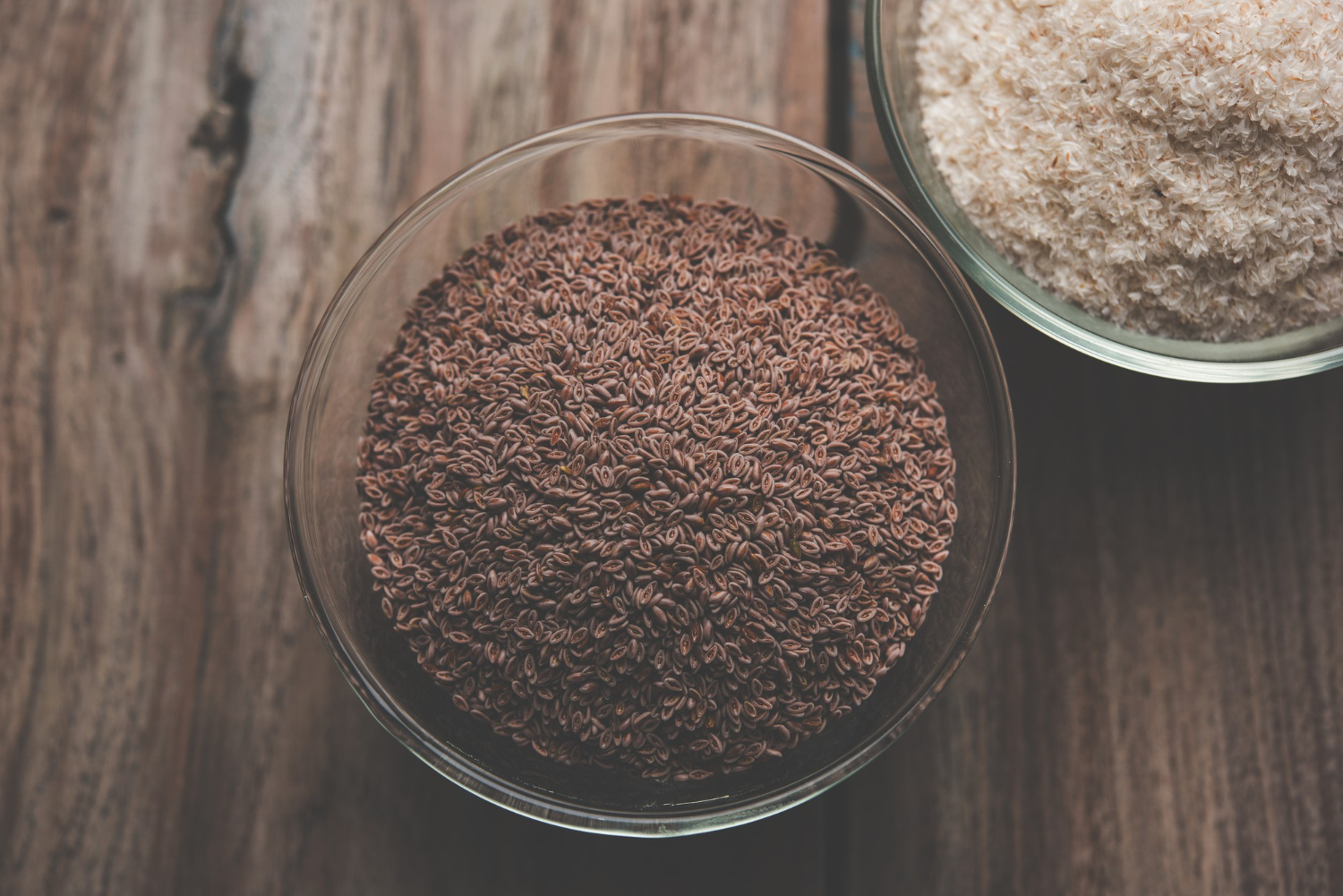Psyllium husk powder is a popular natural supplement known for its high soluble fiber content. It offers numerous health benefits, including improved digestion, better heart health, and support for weight management. Many people turn to psyllium husk powder as a gentle solution for digestive issues like constipation and as a way to help maintain stable cholesterol and blood sugar levels.
Using psyllium husk powder is simple and can be easily added to various foods and beverages. It is important to follow proper dosage guidelines to maximize benefits and minimize potential side effects. As with any supplement, awareness of personal health conditions is essential to ensure safe use.
Incorporating psyllium husk powder into a daily routine can lead to significant health improvements. Those who are curious about this versatile supplement will find valuable insights in the following sections.
Key Takeaways of Psyllium Husk Powder
- Psyllium husk powder is a valuable source of soluble fiber.
- It can aid digestion and support heart health.
- Proper usage and dosage are important to avoid side effects.
What Is Psyllium Husk Powder?
Psyllium husk powder is a natural dietary supplement made from the seeds of the psyllium plant. It is widely used for its health benefits, particularly for improving digestion and regulating bowel movements.
Definition and Origin
Psyllium husk powder is derived from the seeds of the Plantago ovata plant, commonly known as psyllium. This plant is native to regions of Asia and the Mediterranean. The husks are collected, dried, and ground into a fine powder for easier consumption.
Psyllium has been used for centuries in traditional medicine. Its popularity grew due to its effectiveness as a bulk-forming laxative. The powder can absorb water, which helps to form a gel-like substance in the intestines, making it easier to pass stool.
Composition and Properties
Psyllium husk powder is rich in soluble fiber, which is key to its health benefits. On average, a tablespoon of this powder contains about 7 grams of fiber. This composition helps in promoting regular bowel movements and easing constipation.
Additionally, psyllium husk is known for its properties that can help lower cholesterol levels and maintain stable blood sugar. It is often recommended for those managing cholesterol, diabetes, and other related conditions.
When mixed with water, psyllium husk expands, creating a viscous gel. This gel aids in digestion and helps to keep the digestive tract healthy. It is available in various forms, including powders, capsules, and granules, making it easy to incorporate into diets.
Health Benefits of Psyllium Husk Powder
Psyllium husk powder offers several key health benefits. It plays an important role in digestive health, aids in blood sugar regulation, and supports heart health. Each of these areas can significantly improve overall well-being.
Digestive Health
Psyllium husk powder is widely known for its ability to promote digestive health. It is a soluble fiber that helps form bulk in the stool, making it easier to pass. This can provide relief from both constipation and diarrhea.
When mixed with water, psyllium absorbs liquid, forming a gel-like substance. This gel helps to regulate bowel movements by either softening the stool or adding bulk when needed.
Using psyllium husk powder regularly can create a healthy gut environment. It may benefit individuals looking to improve their overall digestive function.
Blood Sugar Regulation
Psyllium husk powder can also aid in blood sugar regulation. Consuming soluble fiber like psyllium slows carbohydrate absorption in the intestines. This can lead to steadier blood sugar levels after meals.
Studies suggest that it may be particularly beneficial for people with type 2 diabetes. Maintaining normal blood sugar levels is crucial for managing this condition.
Including psyllium in a balanced diet can assist in controlling spikes in glucose levels. This provides a practical approach to enhance long-term health for those monitoring their blood sugar.
Heart Health
Psyllium husk powder supports heart health by aiding in cholesterol management. Research indicates that regular intake of psyllium can help lower levels of LDL (bad) cholesterol.
When psyllium is consumed, it binds with cholesterol in the digestive system. This helps to eliminate it from the body, rather than allowing it to enter the bloodstream.
In addition, the fiber content may improve overall heart function. A high-fiber diet, including psyllium, is linked to a reduced risk of heart disease. This makes psyllium a valuable addition to heart-healthy eating plans.
Usage and Dosage Guidelines
Psyllium husk powder can be a beneficial addition to a diet when used correctly. It is important to know how to incorporate it into meals and understand the appropriate dosage for different age groups.
Incorporation into Diet
Psyllium husk powder can be mixed into various liquids and foods. Common options include water, smoothies, yogurt, or oatmeal. Start with a small amount to allow the body to adjust. Gradually increase the dosage to find the right balance.
Many people prefer to take psyllium with plenty of water. Doing so helps prevent issues like bloating or constipation. It’s advisable to drink an adequate amount to help the fiber work effectively.
When adding psyllium to baked goods, it can enhance texture. This helps maintain moisture in products like bread or muffins. Adjusting other liquid ingredients may be necessary when using psyllium powder.
Recommended Daily Intake
The recommended daily intake varies by age. For adults and children over 12, the typical serving is one teaspoon mixed into a liquid one to three times daily.
For children aged 6 to 12, the dosage is usually half a teaspoon one to three times daily. Young children, aged 1 to 3, generally need about 19 grams of fiber a day.
Here is a simplified chart:
| Age Group | Dosage |
|---|---|
| Adults (12+) | 1 teaspoon 1-3 times/day |
| Children (6-12) | ½ teaspoon 1-3 times/day |
| Children (1-3) | 19 g/day (fiber) |
Adjustments may be necessary based on individual health needs. It is wise to consult a healthcare provider before making significant changes to supplementation.
Side Effects and Precautions
Psyllium husk powder can offer benefits for digestion, but it may also lead to some side effects and interactions. Awareness of these factors is important for safe use.
Potential Adverse Effects
Common side effects of psyllium husk powder include:
- Bloating: Some individuals may experience increased gas.
- Cramps: Abdominal cramps can occur, especially if the powder is taken in large amounts.
- Diarrhea: Excessive intake may lead to loose stools, which is counterproductive for those looking to relieve constipation.
In rare cases, more serious reactions can happen. These may include:
- Allergic Reactions: Symptoms such as rash, itching, or difficulty breathing should be addressed immediately.
- Esophageal Obstruction: Taking psyllium without sufficient water may lead to choking or blockage in the throat.
It is crucial to drink plenty of water when using psyllium to help minimize these risks.
Interactions with Medications
Psyllium husk may interact with various medications. It is important to consider the following:
- Cholesterol-Lowering Medications: These may not work as effectively if high-fat foods are consumed during treatment with psyllium.
- Antidiabetic Medications: Psyllium can alter blood sugar levels, so monitoring is essential for those taking diabetes medication.
Patients should avoid inhaling the dust from psyllium products, as this could trigger allergic reactions. Always consult a healthcare provider before starting psyllium if taking other medications, especially for existing health conditions.



